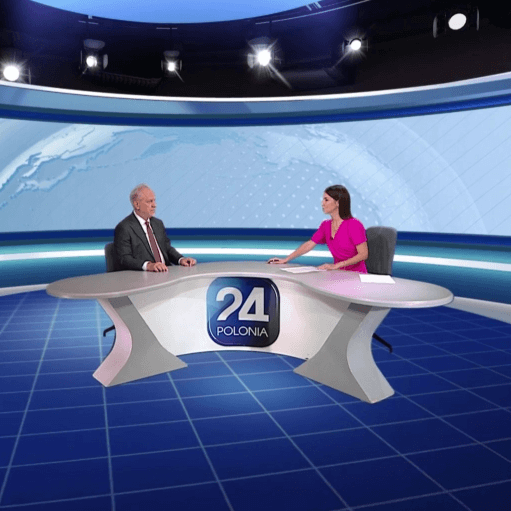We engage world-class scientists in activities directed at the development of science in Poland, and we are increasingly attracting students from all over the world,” emphasised the Secretary General of the Copernicus Academy, Prof. Krzysztof Górski, PhD, in the programme “Polonia 24” on TVP, in which he talked about his scientific career and the tasks facing the Academy.
– Science is international, it has no borders, and it is about practising it in this way. Of course, the Copernicus Academy is not completely new here, but what is new is that it manages to involve 50 world-class scientists in activities directed at our country,’ explained Prof. Górski.
– Directed towards advice on the grant system, the grant system for the youngest, for students, for PhD students, consultation on how to suggest topics to young researchers that are in the line of scientific development and to do it wisely, with commitment, the Secretary General added.
At the same time, the scientist stressed that it is just as important to attract scientists from abroad to Poland as it is to keep Polish researchers in the country. – There is a whole host of Polish scientists working abroad and it would be great if this group could be more strongly involved in the country, he explained.
Prof. Gorski: I consider myself very lucky
In an interview with TVP, the AK Secretary General also spoke about the effects of the last few decades of research in cosmology and his professional experiences. – ‘Most people perceive astronomy as a field that consists of looking into a dark sky, with a few thousand stars, the moon, planets, while armed with telescopes, astronomers see much more and the deeper we look into the universe, the different it looks,’ the scientist emphasised.
– ‘First we see galaxies, clusters of galaxies, objects that are well formulated, defined, arranged in interesting shapes in the sky and that excite the imagination, and the further back in time we go – let’s put it this way, because light moves at a finite speed – the deeper we look into the universe, the earlier epochs we observe,’ explained the AK Secretary General.
– ‘I consider myself very lucky,’ Prof Górski further admitted, explaining that during his scientific career he has witnessed the development of cosmology and knowledge of the microwave background radiation, the research on which he is currently engaged.
– We are talking here about one of the most beautiful fields in the development of astronomy in the last decades, because only 60 years ago we did not know that such radiation existed – it was discovered in 1965 – and its specific characteristics, which allow us to build strongly formulated physical models, on the basis of which we make categorical judgements about how we imagine the Universe worked in the past, were the result of the cumulative knowledge gathered by many researchers and observers of this phenomenon from the ground, from balloons and from the three satellites that dealt with it,” recounted the Secretary General of the AK

